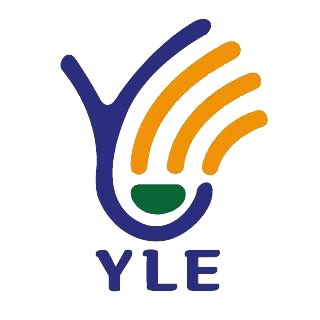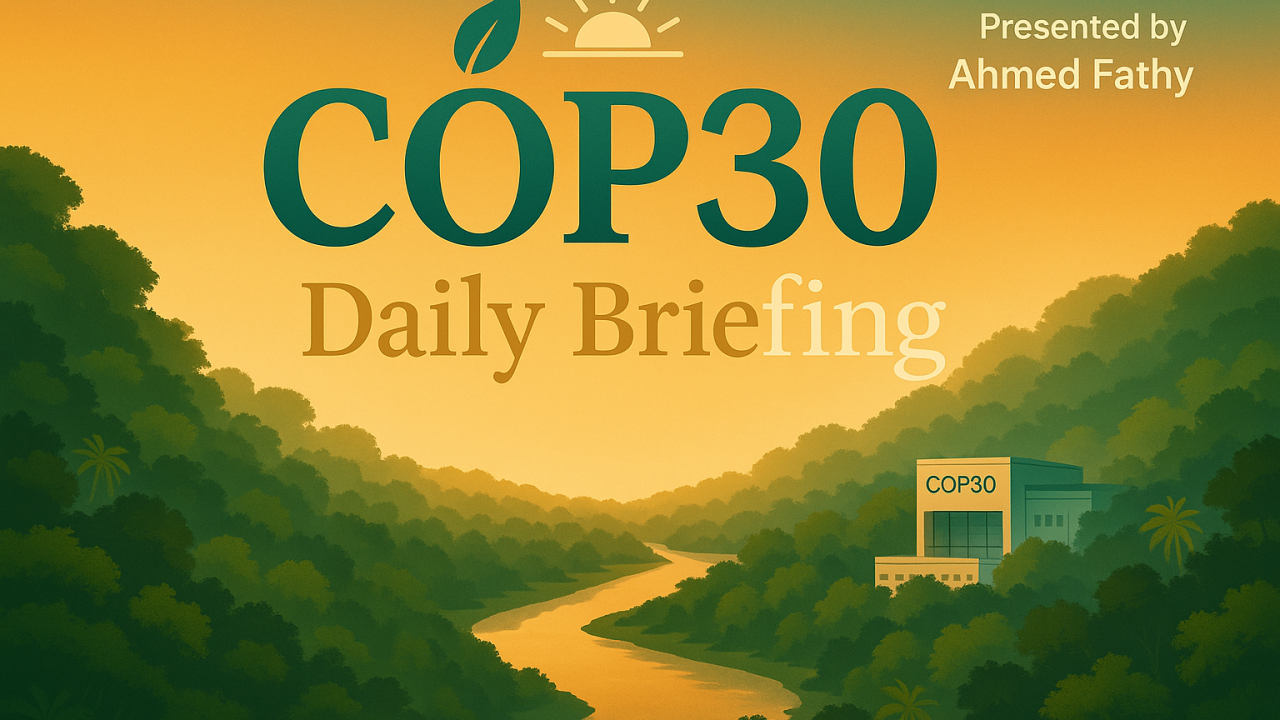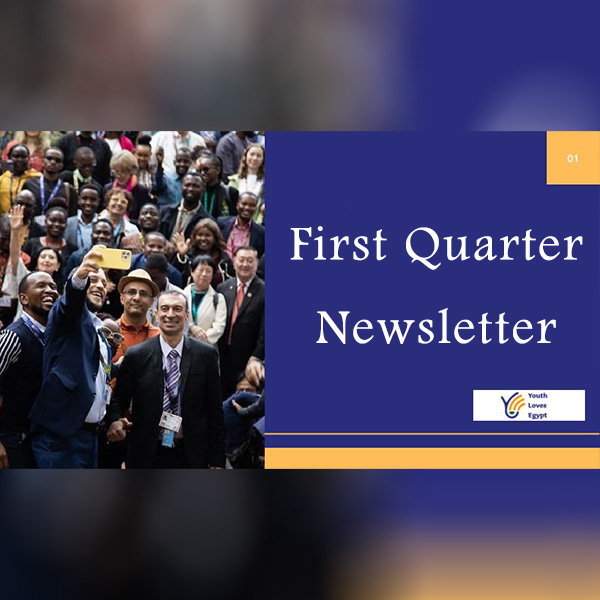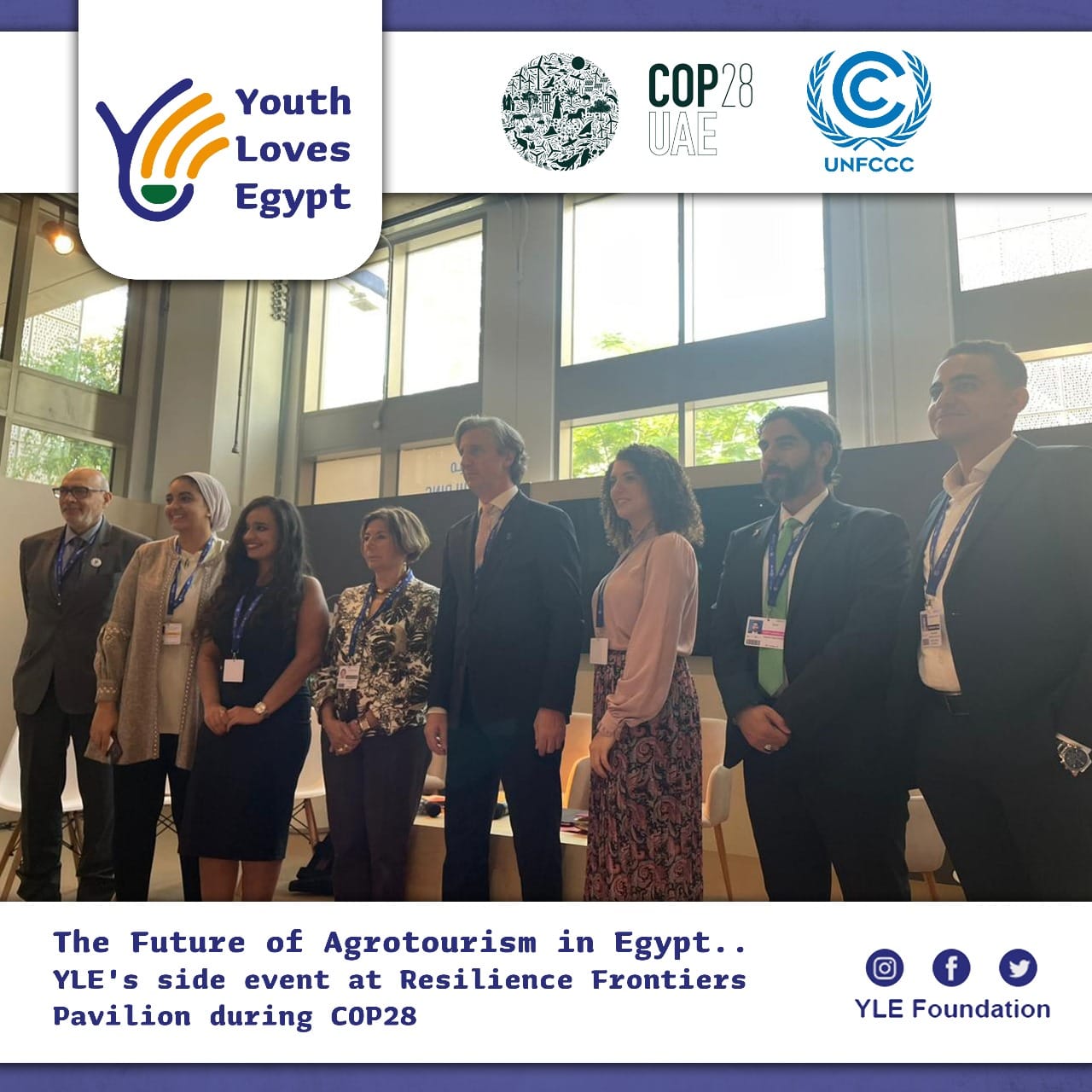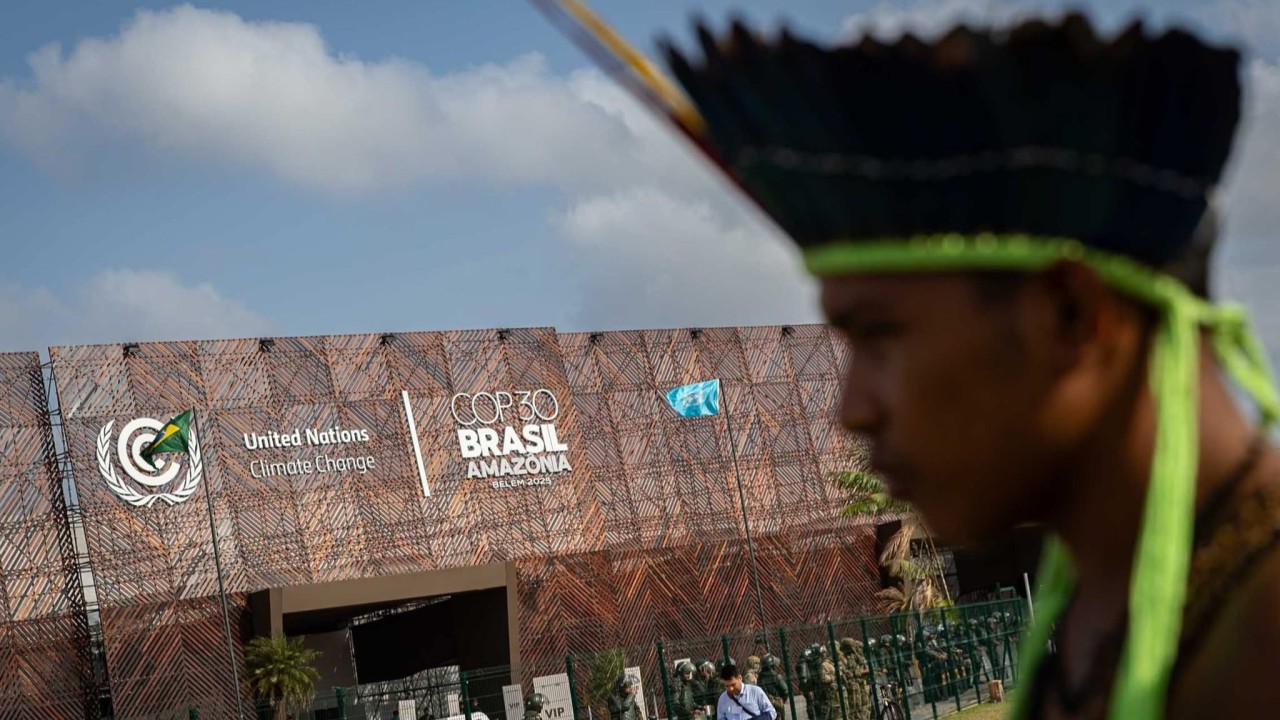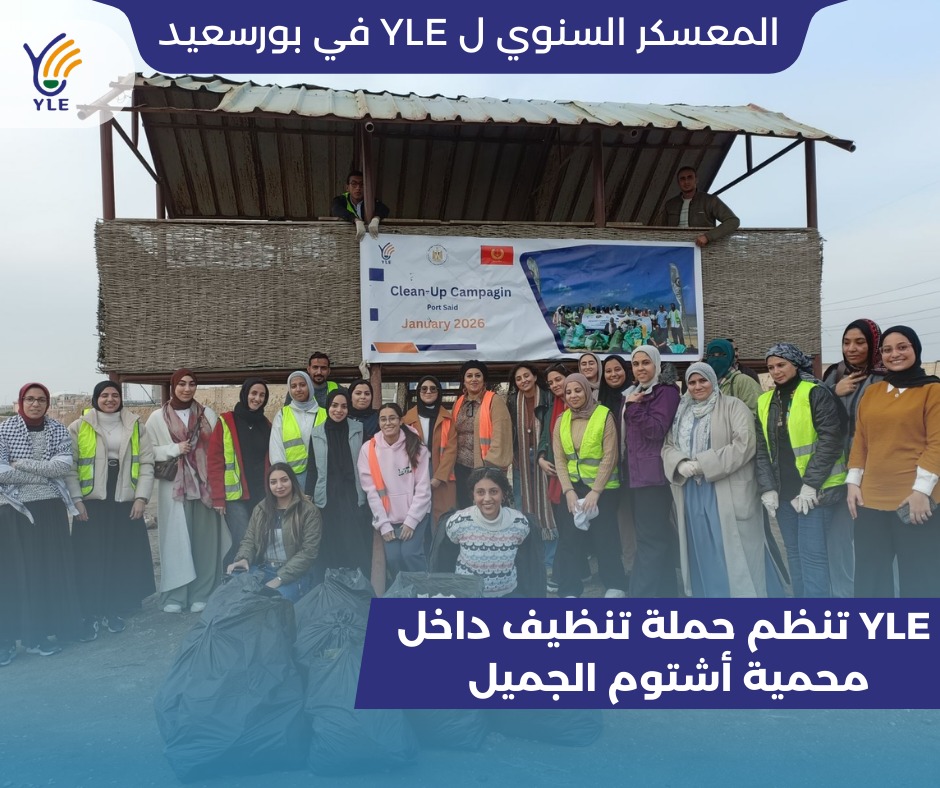Executive Summary
The tenth day of the 30th Conference of the Parties (COP30) in Belém, Brazil, was characterized by a state of anticipation and waiting, as the conference presidency engaged in intensive shuttle diplomacy with parties and ministers to identify red lines and potential areas of agreement. No new texts were published regarding the mutirão decision (a Portuguese term meaning "collective work" which refers to the comprehensive political decision expected from the conference). The day saw a prominent presence of Brazilian President Lula da Silva, who met with civil society groups and expressed his support for the Transitioning Away From Fossil Fuels (TAFF) roadmap.
Despite the apparent calm, technical negotiations continued intensively behind the scenes across several tracks, including adaptation, finance, loss and damage, and Article 6 of the Paris Agreement. Momentum grew for the TAFF roadmap, with the number of supporting countries reaching 83. A preliminary agreement was also reached for Turkey to host the 31st Conference of the Parties (COP31) in Antalya.
1. Key Messages in the Sessions
1.1 General Situation of the Day
The tenth day was characterized by anticipation and waiting, as many negotiators spent much of their day awaiting guidance from high-level consultations, reports from parties on progress made in informal consultations, or the issuance of new texts. The announced plenary meeting did not take place, and no new texts on the mutirão decision were published by the time of the daily briefing closure.
The conference presidency continued intensive shuttle diplomacy with parties and ministers throughout the day, consulting on their red lines and potential areas of agreement. Technical-level negotiators were doing their best to refine their draft texts. Some succeeded, such as those working on non-market cooperative approaches to implementing the Paris Agreement (Article 6.8), in reaching an agreement. Negotiations on a range of issues continued through the night.
1.2 President Lula's Engagement and Civil Society
Brazilian President Lula da Silva was visible and engaged on the conference floor, dedicating time to meet with civil society groups and clarifying his support for the Transitioning Away From Fossil Fuels (TAFF) roadmap. However, adaptation was not among the key points he discussed in these meetings, raising some concern among observers interested in this vital file.
1.3 Hosting COP31
The meeting of the Western European and Others Group (WEOG), the regional group whose turn it is to host next year's COP, concluded without an official announcement yet. However, initial indications suggest that Turkey will host COP31 in Antalya, with Australian Climate Minister Chris Bowen assuming the conference presidency, and the possibility of a pre-COP meeting being held in the Pacific region. This unusual arrangement has raised some questions about how responsibilities will be shared between Turkey and Australia, and about the fate of Pacific island nations most vulnerable to climate change impacts.
1.4 High-Level Event on Global Climate Action
The High-Level Event on Global Climate Action highlighted the achievements of the Action Agenda over the past year and laid out the path forward for the High-Level Climate Champions' Action Plan for the next five years. This reflected the growing enthusiasm and rising prominence of the Action Agenda that the COP30 presidency has built this year. Many parties made interventions on the conference floor indicating strong support for the Action Agenda, endorsing the five-year plan and emphasizing its importance in linking negotiations to real-world implementation. Some parties called for referencing the Action Agenda in the mutirão decision.
2. Global Stocktake (GST) Outcomes
2.1 Transitioning Away From Fossil Fuels (TAFF) Roadmap
Momentum continued to build for the process of developing a roadmap for a just, orderly, and equitable transition away from fossil fuels (TAFF), with the number of supporting countries reaching 83. This number indicates broad political consensus behind developing a structured approach to a just, orderly transition away from fossil fuels. However, there is a need for stronger text in the next version of the mutirão decision, to provide more clarity on how to achieve this.
In a complementary effort, the Colombian government is expected to hold a press conference on Thursday with at least 20 countries supporting its proposed declaration. They are expected to continue building momentum on the TAFF process. The event will also highlight the international conference on phasing out fossil fuels that Colombia plans to host in April 2026.
2.2 Nationally Determined Contributions (NDCs)
Indian Environment Minister Bhupender Yadav announced on Wednesday that India will submit its updated Nationally Determined Contributions (NDCs) by the end of December 2025. He emphasized that climate change is "real and imminent," and that India's implementation of its targets must be adequate, accessible, affordable, and free from restrictive intellectual property barriers. The minister positioned India's submission as part of a larger call: developed countries, he said, must accelerate net-zero targets, fulfill climate finance commitments, and match the ambition of low-emission countries with implementation.
2.3 Deforestation Roadmap
A deforestation roadmap is essential to accelerate implementation of the collective goal to halt and reverse deforestation by 2030. A total of 44 parties have expressed support for a deforestation roadmap. Among those expressing support today were two important tropical forest countries, the Democratic Republic of Congo and Liberia. While momentum on this is building, it is important that parties continue to call for a deforestation roadmap and include this in their textual submissions.
3. Adaptation
3.1 Global Goal on Adaptation (GGA)
No new version of the Global Goal on Adaptation (GGA) text was issued by Wednesday evening. This is likely related to problems in the text, or due to the presidency's desire to issue texts as part of the comprehensive package. At a press conference, Latin American ministers were clear about GGA expectations for adopting indicators and an adaptation finance target. They also called for referencing expert involvement, and the need for more clarity on how metadata will be developed.
3.2 Adaptation Finance
Discussions on adaptation finance are progressing, which is a crucial outcome for the comprehensive package and for GGA in particular. Japan and Australia still have reservations, and they are important targets for conversations, along with the European Union. An ambitious outcome on adaptation finance will be a key component of the COP30 package. A well-crafted target can work as a bridge between negotiating rooms, send a strong signal of solidarity with the most climate-vulnerable countries, and truly help scale up finance at a time when needs are growing and predictability is lacking.
With the options now available for a new target specified in the draft mutirão decision, developed countries must urgently determine what is possible in the context of the New Collective Quantified Goal (NCQG), the unified demands from developing countries to triple adaptation finance from 2025 levels to at least $120 billion by 2030, and the growing needs.
3.3 National Adaptation Plans (NAPs)
A new text on National Adaptation Plans (NAPs) was issued. Bilateral meetings were held on Wednesday evening. The text has been significantly streamlined in the latest version, with bridge proposals from the G77 and China and other parties. Outstanding issues remain to be resolved. Terminology related to Indigenous Peoples is inconsistent, alternating between "Indigenous knowledge" (paragraph 7) and "knowledge of Indigenous Peoples" (paragraph 8), and should be harmonized in the next version. The Like-Minded Developing Countries (LMDCs) and the Arab Group are expected to push against the inclusion of Indigenous Peoples' knowledge and other aspects of inclusivity.
4. Loss and Damage
4.1 Warsaw International Mechanism (WIM) Review
An informal consultation on the Warsaw International Mechanism (WIM) review was held late on Tuesday, with parties remaining divided on whether the co-facilitators should prepare a new text. Several groups (AOSIS, LDCs, AILAC, SUR, EU, Environmental Integrity Group, and Australia) indicated their readiness to move forward and stressed the importance of not losing the progress already made. The Arab Group, supported by others, called for a return to an informal-informal setting to agree on elements that could be referred to the co-facilitators as a basis for a new draft.
As the session extended past midnight, the co-facilitators closed the meeting and pledged to consult with the COP30 presidency on next steps, which had instructed them to draft the text. A new version of the text was issued later at 17:00 on Wednesday, all of which is bracketed.
4.2 Content of the New Text
The new text states that a process will be established to produce a State of Loss and Damage Report; complementarity and coordination will be enhanced between the Executive Committee (ExCom), the Santiago Network, and the Loss and Damage Response Fund; and accessibility and communication will be improved across ExCom knowledge products, Santiago Network activities, pathways to access technical assistance, and engagement with potential new members. The terms of reference, membership, and work plan of the ExCom's Expert Group on Action and Support will be updated, enabling the group to support developing countries in accessing technical assistance and finance. ExCom will also produce knowledge products on methodologies for assessing economic and non-economic impacts.
4.3 Key Areas of Disagreement
However, key areas of disagreement remain. There is still no agreement on referencing loss and damage decisions from the first Global Stocktake, nor on a request from ExCom to develop voluntary guidelines for including loss and damage in NDCs and national plans. The text only accelerates the operationalization of the Santiago Network's resource mobilization strategy and does not provide expanded funding or support. The terms of reference for the State of Loss and Damage Report would only request authors to consider a preamble paragraph on human rights in the Paris Agreement in the context of comprehensive vulnerability analyses. Notably, the text also contains no reference to the International Court of Justice's advisory opinion on climate change, despite requests from Vanuatu and AILAC.
It remains unclear whether we will see adoption of a decision on the WIM review - and failure to adopt would mean five years or more without substantive guidance from parties in ensuring we are on the right track for action and support on loss and damage. Discussions found consensus on many issues, and most country groups favor not losing the progress made and reaching an agreement. An informal consultation on WIM was scheduled for Wednesday evening.
5. Finance
5.1 Article 9.1 of the Paris Agreement
Article 9.1 remains a key priority for the mutirão decision, with a proposal to establish a work programme on implementing the New Collective Quantified Goal (NCQG) as a potential landing zone. However, the presidency has asked parties to submit their key "outcomes" for the Belém package, and many continue to reference Article 9.1 as a priority, so it remains unclear whether the NCQG framework will be sufficient.
Much of COP30's credibility will depend on providing assurances that implementation will be supported. From the outside, the current lack of concrete finance pledges makes other indicators irrelevant. Developed countries will need to provide clear signals of their willingness to address the underlying drivers behind Article 9.1 demands: enhancing finance predictability, ensuring significant provision of climate finance, and initiating the operationalization of NCQG.
5.2 Standing Committee on Finance (SCF)
Negotiations on the Standing Committee on Finance (SCF) remain unresolved. The latest text from Tuesday evening contains bracketed paragraphs mandating a final report on progress on the goal of doubling adaptation finance, and maintains pressure on Article 9.1 by requesting a $300 billion roadmap from developed countries. On Article 9.5, parties appear to remain discussing updating the annex that specifies the content of biennial communications reports.
5.3 Green Climate Fund and Global Environment Facility
Parties engaged informally during the day while awaiting new versions of the Belém package texts, including the mutirão decision. The Global Environment Facility (GEF) and Green Climate Fund (GCF) appear close to agreement.
5.4 Article 2.1c
Work on Article 2.1c (making financial flows consistent with a pathway towards low greenhouse gas emissions and climate-resilient development) and adaptation finance has now moved to the COP30 presidency.
5.5 Clean Development Mechanism (CDM)
During informal consultations of the Conference of the Parties serving as the meeting of the Parties to the Kyoto Protocol (CMP), facilitated by Per Stiansen (Norway) and Alec Muvundika (Zambia), discussions focused on transferring funds from the Clean Development Mechanism (CDM) trust fund, with the co-facilitators noting that the amount available for transfer is $26.8 million.
Parties discussed whether to transfer the funds to: the Article 6.4 mechanism; or the Adaptation Fund; or support capacity-building activities. The United Kingdom, supported by the Alliance of Latin America and the Caribbean (AILAC) and the European Union, proposed transferring the full amount to the Article 6.4 mechanism. The UK added that this could be paired with providing guidance to the Supervisory Body to increase the amount spent on capacity-building.
The African Group favored allocating specific amounts across all three options, proposing $5 million for the Adaptation Fund, $5 million for capacity-building, and the remaining amount for Article 6.4. The Least Developed Countries (LDCs) supported $5 million for capacity-building and transferring the remaining amount to Article 6.4. The Like-Minded Developing Countries (LMDCs) favored equal distribution across all three options.
After additional consultations, the African Group, supported by most parties but opposed by LMDCs, proposed: transferring the full amount to Article 6.4 with $5 million earmarked for capacity-building; and specifying that any remaining balance in the CDM trust fund after this transfer to Article 6.4 and the conclusion of CDM operations would be transferred to the Adaptation Fund; and also deciding that repayment of the new amount to be transferred, in addition to the $30 million transferred in response to decision 2/CMP.16, would be allocated to the Adaptation Fund.
The co-facilitators will report to the presidency that no agreement was reached.
5.6 Budget Matters Related to the International Transaction Log (ITL)
During informal consultations of CMP, facilitated by Abzetta Djigma (Burkina Faso), discussions focused on the potential destination of unspent balances from the International Transaction Log (ITL) trust fund. Most parties, including AOSIS, Norway, and LDCs, supported directing the funds to support further development of Article 6.2 infrastructure of the Paris Agreement, specifically the international registry. LMDCs favored equal distribution to support Article 6.2 infrastructure and address the impact of implementing response measures.
The facilitator will report to the presidency that no agreement was reached.
6. Article 6 of the Paris Agreement (Cooperative Approaches)
6.1 Article 6.2 (Bilateral Cooperative Approaches)
In informal consultations of the Conference of the Parties serving as the meeting of the Parties to the Paris Agreement (CMA), co-facilitators Per Stiansen (Norway) and Pacifica Achieng Ogola (Kenya) proposed that parties conduct a "huddle" on specific issues where there is still disagreement.
In the report after the huddle, New Zealand noted that parties reached consensus on some issues, such as preamble references to previously issued guidance, but there is still disagreement on, among other things, some issues related to inconsistencies in parties' reporting. The co-facilitators offered to prepare a revised text for parties' consideration, noting that "we have this room until midnight, so there is still time to get it right."
Consultations continued late into the night.
6.2 Article 6.4 (Crediting Mechanism)
In informal consultations of CMA, co-facilitators Sonam Tashi (Bhutan) and Kate Hancock (Australia) presented a new draft text, drawing attention to changes in paragraphs related to financing the mechanism's operation. They noted that there is still no consensus on two other issues discussed in the previous night's huddle: extending the deadline for host party approvals of transitioning CDM activities; and terms of Article 6.4 Supervisory Body Mechanism (SBM) members. The co-facilitators urged parties to work on compromises and first invited them to consider the new paragraphs.
Parties shared divergent views on the size of funds to be transferred from the CDM trust fund, with AOSIS requesting a reference to $26.8 million. LMDCs stressed that work on the new finance paragraphs requires discussing the other unresolved issues in parallel.
Parties then huddled to seek consensus on sections related to: transparency and stakeholder engagement; and methodologies and standards. In the report, Switzerland and New Zealand shared that there was convergence on paragraphs related to: transparency of decision-making in the Supervisory Body and Methodological Expert Panel; enhancing consultation processes with stakeholders in the Supervisory Body; and deleting a paragraph on clarifying definitions of reductions, avoidance, and removals.
Discussions continued in informal-informal consultations in the evening.
6.3 Article 6.8 (Non-market Approaches)
In informal consultations of CMA, co-facilitator Jackie Ruesga (New Zealand) invited parties to confirm agreement on a new version of the draft text prepared based on informal-informal consultations held through the night. Parties agreed to refer the text to the presidency for adoption by CMA.
7. Technology
7.1 Consultative Group of Experts (CGE)
In informal consultations of COP, co-facilitators Hans Kolshus (Norway) and Tian Wang (China) called for a report from informal-informal consultations. Australia reported good progress, noting that delegates were able to agree on most small issues, with only major points of disagreement remaining.
Discussions continued in informal-informal consultations, and further informal consultations were scheduled for late evening.
7.2 Review of Climate Technology Centre (CTC) Functions
In joint informal consultations of COP and CMA, facilitated by Tosi Mpanu Mpanu (Democratic Republic of Congo) and Mattias Frumerie (Sweden), the European Union reported progress in informal-informal consultations, noting that parties: were able to refine most of the decision text, with brackets remaining around providing support to the Climate Technology Centre; and agreed on about half of the annexed text on reviewing the Centre's functions.
Discussions continued in informal-informal consultations, and informal consultations resumed in the evening.
8. Institutional Arrangements
8.1 Cooperation with Other International Organizations (Synergies between Rio Conventions)
Parties agreed to adopt the informal note on the cooperation item drafted by the presidency as a conclusion for COP30. The note failed to reflect parties' positions or SBSTA 62 consensus, and did not provide operational steps to enhance cooperation across the Rio Conventions. This disappointing outcome does little to respond to decisions on enhancing synergies agreed under CBD COP16 in Cali and UNCCD COP16 in Riyadh.
There was support in the room for stronger text and a more substantive outcome from Gambia, Canada, Australia, the European Union, Mongolia, the United Kingdom, the Environmental Integrity Group, Colombia, Panama, Equatorial Guinea, Mauritius, Liberia, the Democratic Republic of Congo, Japan, Armenia, and Indonesia. Saudi Arabia, Russia, and China supported adopting the text as proposed.
The informal note states that COP notes the submissions from parties and observers, notes the importance of cooperation between the Rio Conventions and the work of the Joint Liaison Group, and invites parties and observers to submit submissions on enhancing inclusiveness of cooperation with other international organizations, as well as on cooperation with the secretariats of the other Rio Conventions, by 1 May 2026.
8.2 Enhanced Participation of Local Communities
Marco Tulio Scarpelli Cabral, COP 30 presidency, called for views on the draft text. The Alliance of Small Island States (AOSIS) highlighted that the crucial balance of representation between parties and Indigenous Peoples in the Facilitative Working Group (FWG) has enabled important outcomes. They stressed that adding seats in the FWG for local communities would affect this balance, especially if parties would get equivalent additional seats without consideration for Indigenous Peoples, and recalled that previous FWG reviews did not reach a conclusion on this matter.
AOSIS, the European Union, Norway, Australia, Canada, and New Zealand stressed that local community participation in the FWG needs careful deliberation and called for considering the matter during the 2027 FWG review. Norway and Canada opposed submitting a report on presidency consultations on ways to engage local communities more fully to COP 31 for appropriate action, noting that this could prejudge the outcome of the 2027 review process, and that it should feed into the review to be concluded at COP 32.
Benin highlighted that local communities are on the frontlines of the climate crisis, possess valuable traditional knowledge, and play a vital role in restoring fragile ecosystems. They called for more resources, training, regional exchanges, and collaboration to enhance local community inclusion in decision-making processes.
The presidency will revise the draft text.
9. Role of Civil Society and Indigenous Peoples
9.1 Gender
The Women and Gender Constituency (WGC) held a press conference on Wednesday afternoon in which they strongly defended the next ten-year Gender Action Plan (GAP), with speaker Mary Robinson stating: "There are many gaps in this process. We only want one gap from Belém, and that is the Gender Action Plan." This came as a follow-up to Tuesday's letter from WGC to the presidency, in which they expressed concerns about the perceived de-prioritization of GAP, whose negotiations have been pushed to the end of the week. Notably, President do Lago took time to reaffirm the importance of gender at COP30, at the beginning of a press conference on Tuesday evening.
During Wednesday's press conference, speakers from the constituency also expressed serious concerns about "backsliding" on gender language in texts, despite gender appearing in COP texts for 33 years. They noted that while there have always been opponents (such as Saudi Arabia, Russia, Iran, and the Vatican), the current backsliding was distinctive - and "brutal" -, with parties actively trying to roll back human rights and intersectionality by adopting binary positions and also undermining the multilateral system by demanding the ability to footnote the definition of the word gender in texts. They expressed hope in the 92 parties that came out with a statement supporting gender at pre-COP, and reminded Brazilian President Lula and his negotiators that he owes his victory to female voters and it is time to honor those who put him in power.
10. Climate Action Agenda
10.1 High-Level Event on Global Climate Action
The High-Level Event on Global Climate Action: Accelerating Implementation concluded the official programme of the Action Agenda at COP30. Speakers included Ana Toni, CEO of COP 30, Umayra Taghiyeva, COP 29 presidency, Simon Stiell, Executive Secretary of the United Nations Framework Convention on Climate Change, and Dan Jørgensen, High-Level Climate Champion for COP 30.
The event celebrated the work the COP30 presidency has set in motion by showcasing the achievements of the Action Agenda over the past year and laying out the path forward for the High-Level Climate Champions' Action Plan for the next five years. This will help carry forward the efforts, ideas, and vision of the COP30 presidency, including across future COP presidencies. As Simon Stiell said, "This Climate Action Agenda is a central catalyst for implementation... The responsibility now lies with all of us - parties and non-parties."
Many parties and groups (the European Union, the United Kingdom, the Environmental Integrity Group, France, Australia, and Morocco) made interventions on the conference floor indicating the important role the Action Agenda plays in linking negotiations to implementation. The UK linked the real-world transition seen in the Action Agenda to TAFF saying "Momentum is building on a roadmap to transition away from fossil fuels, 82 countries from the Global North and Global South [at the time of the briefing, the briefing writers understand that 83 countries now support] and I look forward to the presidency recognizing this in the conclusion from COP." France also spoke in support of TAFF.
10.2 Key Announcements from the Action Agenda
The Action Agenda has been a prominent feature at COP30, the "COP of implementation," with more than 117 new plans to accelerate solutions developed by coalitions across 30 activation groups, illustrating how businesses, investors, and communities are working together to turn ambition into action. Key announcements from the Action Agenda at COP30 include:
· Financing Initiative for National Planning and Implementation (FINI) for Adaptation and Resilience: Led by the Atlantic Council's Climate Resilience Center and NRDC to connect more than 100 organizations with actions, policies, and solutions to develop a trillion-dollar pipeline of investment-ready adaptation and climate resilience projects by 2028.
· Country Action Accelerator for Super Pollutants: Will help 30 developing countries reduce dangerous super-pollutant gases by 2030.
· Belém Declaration on Global Green Manufacturing: Which will provide a framework for countries, especially in developing economies, to place green manufacturing at the center of their economic strategy.
· Belém Commitment on Sustainable Fuels ("Belem 4x"): The pledge to quadruple the production and use of sustainable fuels by 2035 for hard-to-abate sectors such as aviation, shipping, steel, and cement, led by the Clean Energy Ministerial (CEM) and endorsed by 23 countries including strong representation from developing economies.
· Trillion Dollars for Clean Energy and Grids by 2030: With utilities and financial institutions committing more than one trillion US dollars to expand clean energy and modernize global energy grids by 2030. This acceleration directly supports the COP 29 Global Grids and Storage Pledge and the COP 28 commitment to triple renewable energy.
· New Grid Financing Principles: To mobilize climate and development finance for grids in emerging economies. Developed under the Green Grids Initiative and UNEZA and endorsed by the COP 30 presidency under the "Plan to Accelerate the Expansion and Resilience of Energy Grids."
· Global Plan to Strengthen Climate-Resilient Health Systems: Brazil announced $300 million, supported by the Climate and Health Funders Alliance, a group of more than 35 philanthropic foundations.
· Green Digital Action Hub: To measure and reduce the carbon footprint of the technology sector and expand access to green digital tools - building on the COP29 declaration endorsed by 82 countries and 1,800 organizations.
· AgriLLM: The world's first open-source AI model for agriculture, and AIM for Scale, aiming to reach 100 million farmers with digital climate tools supported by the Gates Foundation.
· Global Jobs and Skills Initiative for the New Economy: To bridge the talent gap in the net-zero transition and integrate green skills into national plans, with a focus on women and youth.
· Energy Efficiency Doubling Acceleration Plan: Which brings together more than 30 international partners and 50 coordinated actions to deliver roadmaps, policies, and investments aimed at doubling global energy efficiency by 2030.
11. Energy and Food Systems
11.1 Support for TAFF Roadmap and Upcoming Colombian Declaration
Following a press conference on Tuesday afternoon, country representatives at the ministerial level announced their support for a roadmap for a just, orderly, and equitable transition away from fossil fuels. Today, the list of 83 countries supporting a TAFF roadmap became publicly available, indicating broad political consensus behind developing a structured approach to a just, orderly transition away from fossil fuels.
Colombia will hold a press conference on Thursday at 14:30 Brasília time to outline progress so far and next steps in advancing the global transition away from fossil fuels, under the Belém Declaration, complementary to efforts to deliver a process for a TAFF roadmap at COP30, and ahead of the international conference Colombia will host in 2026. The briefing will be led by the Minister of Environment and Sustainable Development, Irene Vélez Torres.
11.2 Food Systems and Agriculture
Several initiatives advanced on this agenda today:
RAIZ Initiative (Resilient Agricultural Investment for net Zero land degradation): Envisioned as a "global mutirão for agricultural land restoration," and led by Brazil, with support announced today from Australia, Canada, Germany, Japan, Saudi Arabia, New Zealand, Norway, Peru, and the UK, the accelerator will help governments map degraded land, identify viable restoration projects, and build financing vehicles that can attract private capital. RAIZ has been described as the collective fabric that connects governments, finance, and farmers. One-fifth (one billion hectares) of agricultural land is degraded, meaning worse soil, higher emissions, and lower yields. Restoring just 10% could feed 154 million more people and create millions of rural jobs.
Alliance of Champions for Food Systems Transformation (ACF): The Alliance announced three new member countries: Colombia, Vietnam, and Italy. These countries join the founding members - Brazil, Norway, Sierra Leone, Cambodia, and Rwanda - bringing membership to eight countries committed to whole-of-government action on food systems transformation. The Alliance issued a ministerial statement on financing food systems transformation and published progress frameworks and snapshots from founding members, illustrating measurable work in areas such as agroecology, irrigation, food waste reduction, and smallholder farmer resilience.
COP30 Climate Action Agenda Fertilizer Breakthrough: Brazil and the UK announced the COP30 Plan to Accelerate Fertilizer Solutions, a coordinated global strategy to accelerate the transition to low-carbon fertilizers and reduce emissions from one of the fastest-growing climate sectors. Anchored in the new Belém Declaration on Fertilizers, the Plan delivers the world's first international standard for low-emission fertilizers, key initiatives to create demand (including a global buyers' alliance and clean ammonia investment push), and dedicated support for countries - especially emerging economies - to build and finance low-carbon fertilizer production.
Launch of TERRA (Together to Expand Resilient Agroecology, Agroforestry and Restoration): Brazil's Ministry of Agrarian Development and Family Farming (MDA) launched PAS TERRA ("Plan to Accelerate Solutions - Together to Expand Resilient Agroecology, Agroforestry and Restoration") under the COP 30 Action Agenda, to advance agroecology and agroforestry as central climate action strategies. The Plan emphasizes family farmers, Indigenous Peoples, and traditional communities as key actors, aiming to enhance food security, restore degraded landscapes, and generate inclusive economic opportunities.
Industrial Agriculture Lobbyists: An analysis found that more than 300 lobbyists representing industrial agriculture attended COP30 - including major interests in meat, dairy, grains, pesticides, and biofuels. This represented a notable increase from the previous year and exceeded the size of many national delegations. About a quarter of these lobbyists obtained accreditation as part of official country delegations, and a small group gained privileged access to negotiating spaces. Civil society groups raised concerns that such a strong agribusiness presence could undermine the summit's credibility, given the sector's key role in global emissions and Amazon deforestation, and that corporate influence risks shaping climate policy outcomes.
12. Outside the Conference
12.1 India's Nationally Determined Contributions
Environment Minister Bhupender Yadav announced that India will submit its updated Nationally Determined Contributions by the end of December. He emphasized that climate change is "real and imminent" and that India's implementation of its targets must be adequate, accessible, affordable, and free from restrictive intellectual property barriers. The minister positioned India's submission as part of a larger call: developed countries, he said, must accelerate net-zero targets, fulfill climate finance commitments, and match the ambition of low-emission countries with implementation.
12.2 Diplomatic Controversy with German Chancellor Merz
In a diplomatic misstep that drew widespread criticism - and memes - in Brazil, German Chancellor Merz made clear his disdain for Belém, publicly stating that he and his team were "happy" to be "leaving that place." Helder Barbalho, governor of Pará, was harsh in response, describing Merz as "prejudiced," and saying "it's strange to see that those who contributed to global warming are surprised by the heat in the Amazon." Lula was more philosophical, expressing regret that Merz didn't go dancing or spend more time in Belém's local bars.
